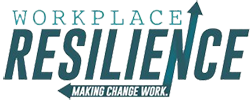 I recently gave a motivational presentation to a large organization. The energy in the room was strong and I was quite confident when I finished the speaking engagement. Feeling a strong adrenalin rush, I quickly found my seat and encountered a number of individuals who congratulated me on a job well done.
I recently gave a motivational presentation to a large organization. The energy in the room was strong and I was quite confident when I finished the speaking engagement. Feeling a strong adrenalin rush, I quickly found my seat and encountered a number of individuals who congratulated me on a job well done.
Later, while I was networking with different people, a man approached me to talk. He shared with me that my presentation would have been much better if I had gone into more detail on a specific topic. I handled the interaction diplomatically and went to sit down.
I was devastated.
I became obsessed with the comment the man had shared. Over and over, my mind swirled with this bit of negative information. If only I had realized that I needed to go into more detail! Then, the presentation would have been great. How could I have not known that the key to success was to go into more depth!? I believed that my speech was sub par because I neglected this one aspect. I bounced this perceived error around in my mind until the error had become mammoth sized.
Does this faulty thinking sound familiar at all? I’m sure at one point in your life, you have also succumbed to this dysfunctional thought pattern.
This specific cognitive distortion that affects so many of us is called filtering. It happens when you focus on the most negative and upsetting features of a situation, filtering out the more positive aspects. In my case, I had numerous individuals that shared positive feedback on my presentation. I felt excited and energized when I stepped down from the stage. However, none of the positive praise seemed to matter. Apparently, all it took was one person’s negative opinion to change my perspective on the whole speaking engagement.
Looking back on this experience, I can definitely see the error of my ways. Due to my resilience training, I was able to readjust my thinking and look at the situation more realistically. I studied the situation in a pragmatic manner and asked myself why I was discounting all the positive feedback. The question was, why did I give this one man such power? This just didn’t seem reasonable.
Obviously, this experience didn’t stop me from taking part in future presentations. I was able to realistically look at the facts and reason it out. However, not everyone goes through this process and your filtered experience can be a great time waster—
Stopping you from moving forward in life.
Make sure the lens that you view the world through is not clouded with some faulty thinking.


